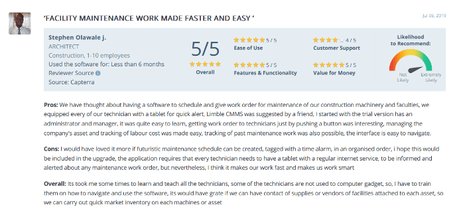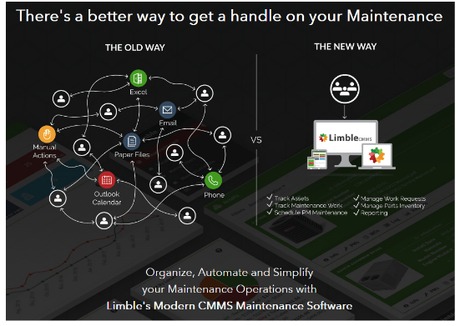Anyone who says that building quality links month after month is easy is either someone who doesn't respect their time investments or someone who really needs to up their standard for "quality".
If link building wasn't hard enough, when you put it in the context of an industrial niche, it can get even harder. This is because these types of niches often come with some unique challenges.
As a link building agency, we had a chance to work with a few different clients from the industrial space. After a while, it wasn't hard to spot different trends and notice that some things just work differently in this space.

If you stick with us for a while longer, you will learn how to optimize and adjust different parts of your link building process for industrial niches so that you don't end up banging your head against the wall, wondering why nobody is responding to your pitches or why your content is getting constantly declined.
What Do We Mean by "Industrial Niche"?
Before we start the show, we need to set the stage.
In the context of this article, industrial niches are niches like:
Don't look at this as a definite list but more as general guidelines. There are other industries that could be included here. Basically, any that match common traits of listed industries like their B2B orientation, focus on the production of goods, and involvement of complex assets and equipment for their daily operation.
One important thing to note here for every link builder is the correlation between what you do and who is your target audience.
For example, if you have developed a software that is used in manufacturing, you are not in the IT industry, you are in the manufacturing industry - at least link building-wise. That is because your target audience is high-level decision-makers in manufacturing companies. And guess what, they do not visit developer forums to find solutions to their problems.
Now that we've got this out of the way, let's see what are the common link building challenges in industrial niches and what are some viable solution you can apply.
1) You Have to Get Technical
It is very hard to sell something you do not understand. Why is this important for link building?
Well, if you are building links, you presumably publish content on relevant sites in your industry. In general, that content should be able to satisfy at least two criteria:
- the topics have to be interesting to the site in question
- the content should have some connection to your core business
To be able to cover both of these things, you need to have a very good grasp of what the business you're promoting offers and what does the target audience want to know. This way, aside from getting those valuable links, you can also show how to solve a real problem or two, something your potential prospects will notice.

While deep target audience analysis should be a part of the link building process in every niche, getting familiar with an industrial product and the people who might want to use it can be challenging.
Think of it this way. If your average link builder runs a campaign for a pet product company, they already have some experience under their belt as they probably own a pet themselves. In the same fashion, if they run a campaign for a company selling furniture, they will still have some basic understanding of the niche, as they too are in a way a target audience and can draw some inspiration from personal experience.
The main reason for this is the lack of personal experience.Now imagine you are selling a predictive analytics software that helps companies in the industrial sector predict potential issues with machines and equipment. You are now in a position where you need to generate helpful content for engineers with years of experience, and that content needs to be related to predictive analytics - which is not a field where your average link builder can draw inspiration from their everyday experience.
While the complexity of the industry makes link building challenging, you should not quit just yet.
How to overcome this?
If you are planning to build links for a client in an industrial niche, there are a few approaches you need to combine here to ensure you have a good understanding of the thing you are promoting and the people to whom you are promoting it to.
The first step (which you can obviously skip if it is your own product/service) is to get to know the thing you are promoting. You can do that by:
The second step is to do a deep target audience analysis . We usually like to start this of by sending a questionnaire and getting some initial insight from the clients themselves. After that, the process is fairly straightforward:
- carefully reading feature and money pages your client has
- if available, watch the instructional videos of how the product works
- jump on a call with the client, ask for a walkthrough and use this chance to ask questions about anything you do not understand about the product/service
- if it is a software product, ask the client to give you trial access so you can get some hands-on experience with it
- competitor research (the content on their blog and social media)
- find 2 or 3 high-authority sites that specifically cover the required niche and thoroughly research what they write about (helps to get a better grasp of the industry in general)
- jump to Quora, Reddit and relevant forums in the niche (helps in finding relevant pain points and challenges you can create content around)
- read reviews people left on sites like Trustpilot and Capterra (for both your business and the competitor)

The third step is optional and it involves a client being the safety net. The idea is that, for the first 2 or 3 months, you have someone with high technical understanding pre-approving topic suggestions and reviewing accuracy and advice quality of the content you generate. It is a good way to protect brand image and ensure content quality while you are still getting familiar with the specifics of the niche and the product.
2) The Pool of Relevant Opportunities Is Smaller
Technical fields are only starting to embrace content marketing and some technical niches can be very narrow. Both of these ingredients are bad for link building because this means that there aren't that many sites who cover content related to your core business.
Take for example one of our clients from the maintenance industry called Limble CMMS.

To give you some context, (Computerized Maintenance Management System) that helps maintenance managers schedule and oversee all maintenance-related tasks. Simplified, it is like a Limble is a CMMS project management tool for maintenance professionals.
A couple of months after we started with the project, we realized that there are only a dozen of high-authority sites with the North American audience that publish content strictly for maintenance managers.
Now, a couple of years later and 100 backlinks wiser, here are a few tips we picked up on what you can do to continue building relevant links even when it seems there is no one left worth contacting.
Quick Links:
How to Overcome Industrial Linkbuilding Hurdles? | Build Industrial Links Easily
Here are some methods you should consider employing when building links in industrial niches.
1) Diversify your link building methods
Besides guest blogging (which works great in industrial niches too), you can also:

- Create an infographic. Infographics can work great in technical fields too. For instance, we created a post and an infographic around a low competition keyword "types of maintenance", built a few links from infographic sharing sites and voila - now we over 60 visitors a month to that post without really putting in that much effort.
Keep in mind that, if you are going to use the last method, people will almost always ask for something in return. Be it a link, a social share, a newsletter mention or something completely different, be aware that most people will need an additional incentive to update their old post with a link to your resource.
Here are some additional link building hacks for niche sites you might want to check out.
2) Go horizontal
When you cover all blogs in your niche, one thing you can do is go horizontal. For this project in particular, this meant that after we got featured on all of the sites that write predominantly about maintenance, we had to switch to sites that cover other topics but could still be interested in an article with a maintenance spin.
- Look for product review sites. If you have a software product, be aware that there are many other review sites besides Software Advice and Capterra you could be featured upon. Aside from the obvious benefits of having your tool featured on such lists, you will also often get a do-follow link towards your homepage.
- Try to "steal" links from sites like While doing the initial keyword research, we noticed that the above-mentioned sites Wikipedia and Techopedia. rank in the top 3 search result for some common technical terms in the maintenance industry. Since we were already creating in-depth guides around these keywords, we decided to reach out to sites that link to the Wikipedia resource and offer them a better quality resource to link to.
In practice, this meant contacting site that covers the Healthcare industry and writing how preventive maintenance measures asset uptime . Or contacting Oil & Gas blog with an article on biggest maintenance challenges in the Oil & Gas industry . Or contacting a site that writes about AI & Machine learning and writing about using predictive analytics in the maintenance industry .
You get the gist.
3) Consider becoming a regular contributor
While it is important to diversify your backlink profile and focus on getting links from different domains, marketers in industrial niches shouldn't be hesitant to become regular contributors at high-authority sites in their niche that have respectable traffic.
Since you are in control of the content, you can watch that in every one of your posts you link to a different guide on your blog. While pure SEO value you are going to get will decline over time, the brand awareness and the quality of referral traffic you can earn usually make up for that.
3) You Have To Produce Quality, Niche-specific Content
Producing quality content that actually teaches you something on a technical topic can be very challenging.
The reason for that is again lack of experience. A good writer with solid research skills will be able to cover your everyday fitness/food/fashion/healthy living topics, but that doesn't mean they will also be able to cover something like how conveyor belt type impacts overall equipment effectiveness .
If you don't look for technical writers with experience in your niche, you will very quickly start getting responses like " The article reads well, but this is just too basic for our audience ".
How to overcome this?
- Yes, this again. Understanding the product/service and the Don't slack on a target audience and product research.audience you market it to is the only way you will be able to create interesting topics, as well as be able to review and estimate the quality of produced content.
I can't stress this enough - the best way to ensure you are producing quality, niche-specific content is to find a technical writer with the experience in your niche. Test as many writers as you need and be prepared to pay them more than your usual rate.
- Find capable freelancers. There aren't that many writers who can cover technical topics in a very narrow niche. We tried a lot of different freelancing platforms, agencies, and content platforms. The only thing that actually gave us results we were satisfied with was doing paid advertisement on ProBlogger
And be patient. You will come across many writers who write good but can't cover the topics on a deep enough level. You will then find some who really know their stuff but their writing is poor or they aren't familiar with optimizing the content for SEO. There are writers out there who can do both, you just have to pile through until you find them.
Final Verdict: Is Link Building Always a Viable Strategy in This Space| Building Links In Industrial Niches
Link building that is based on a carefully crafted content marketing strategy is a viable choice for every niche.
But, does it provide the best ROI for every business? If you are selling something really expensive like diesel generators or gas turbines, you might be better of focusing on highly targeted paid promotion and doing some networking in your niche.
- Start with topics you understand. With time, you will be able to tackle complex technical topics. If you are working in an unfamiliar area, start with high-level topics and aim at medium-authority blogs (there is usually more chance they will be interested in this type of content and it gives you a chance to learn more before you try your luck with top sites in your niche).
Everyone else, including businesses in industrial niches, should be able to achieve measurable results using link building strategies and principles outlined in this article.


